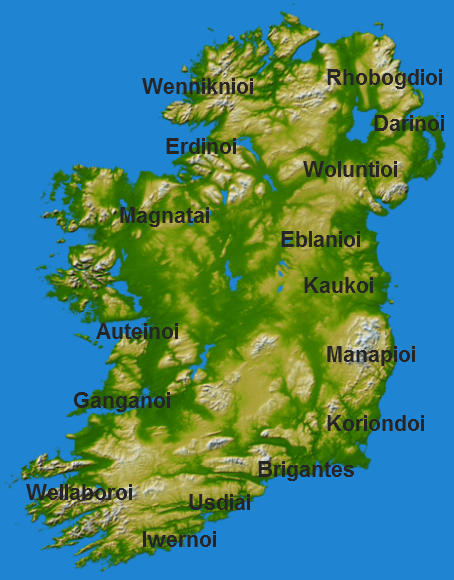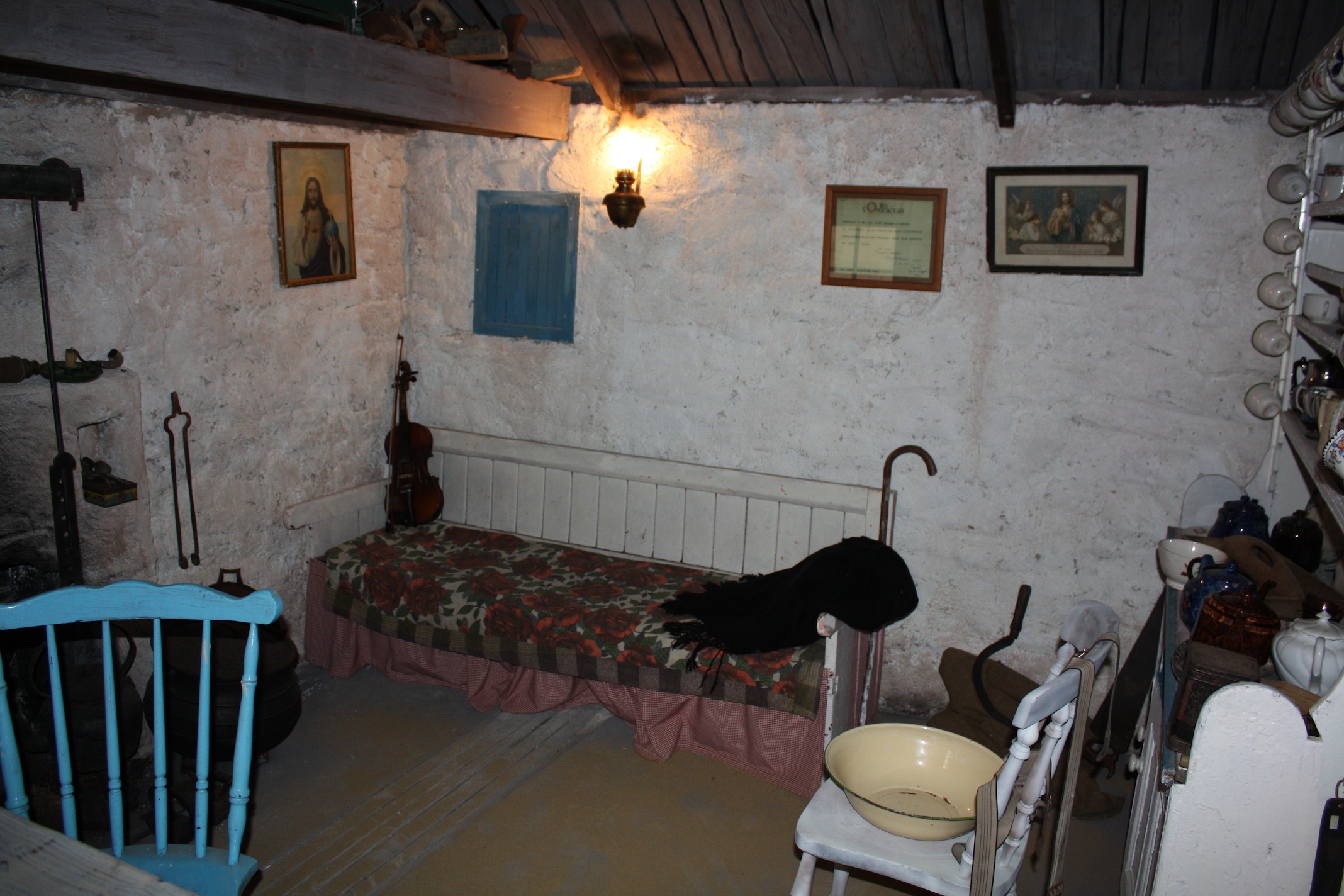|
Tomás O'Crohan
(; commonly anglicised as Tomás O'Crohan and occasionally as Thomas O'Crohan; 1855 – 7 March 1937) was a native of the Irish-speaking Great Blasket Island near the coast of the Dingle Peninsula in Ireland. He wrote two Irish-language books, ("Island Cross-Talk"), written over the period 1918–23 and published in 1928, and ("The Islandman"), completed in 1923 and published in 1929. Both have been translated into English. He is known as the "godfather" of Blasket Island writers. The 2012 translation by Garry Bannister and David Sowby is to date the only unabridged version available in English. In addition to his writings, Ó Criomhthain also provided content for Father George Clune's lexicon of the Munster Irish, Munster Irish dialect, ''Réilthíní Óir''. Biography It is unclear precisely when Ó Criomhthain was born. In the first sentence of ''An tOileánach'', he states that he was born on Thomas the Apostle#Feast days, St. Thomas's Day in 1856. However, records indic ... [...More Info...] [...Related Items...] OR: [Wikipedia] [Google] [Baidu] |
Great Blasket Island
The Great Blasket () is the principal island of the Blasket Islands, Blaskets, County Kerry, Republic of Ireland, Ireland. It was home to a small fishing community of Irish speakers until the island was abandoned in 1954 when living there became unsustainable. Geography The island lies approximately two kilometres from the mainland at Dunmore Head, and extends six kilometres to the southwest, rising to at its highest point (An Cró Mór). The nearest mainland town is Dunquin; a ferry to the island operates from a nearby pier during summer months. The most easterly extremity of the island, Garraun Point at has been incorrectly cited as being the most westerly point of the Irish mainland. At longitude 10° 39.7', Tearaght Island is the westernmost of the Blaskets, and thus the most westerly point of the republic of Ireland. History The Great Blasket has been inhabited on and off for centuries. The earliest known reference to people living on the island was at the start of th ... [...More Info...] [...Related Items...] OR: [Wikipedia] [Google] [Baidu] |
An Béal Bocht
(The Poor Mouth) is a 1941 novel in Irish by Brian O'Nolan (Flann O'Brien), published under the pseudonym "Myles na gCopaleen". It is widely regarded as one of the greatest Irish-language novels of the 20th century. An English translation by Patrick C. Power appeared in 1973. Stan Gebler Davies wrote: "''The Poor Mouth'' is wildly funny, but there is at the same time always a sense of black evil. Only O'Brien's genius, of all the writers I can think of, was capable of that mixture of qualities." Background The book is a kindly parody of the genre of Gaeltacht autobiographies, such as Tomás Ó Criomhthain's autobiography (The Islandman), or Peig Sayers' autobiography ''Peig'', which recounts her life, especially the latter half, as a series of misfortunes in which much of her family die by disease, drowning or other mishap. Books of this genre were part of the Irish language syllabus in the Irish school system and so were mandatory reading for generations of children from ... [...More Info...] [...Related Items...] OR: [Wikipedia] [Google] [Baidu] |
Gaelic Culture
The Gaels ( ; ga, Na Gaeil ; gd, Na Gàidheil ; gv, Ny Gaeil ) are an ethnolinguistic group native to Ireland, Scotland and the Isle of Man in the British Isles. They are associated with the Gaelic languages: a branch of the Celtic languages comprising Irish, Manx and Scottish Gaelic. Gaelic language and culture originated in Ireland, extending to Dál Riata in western Scotland. In antiquity, the Gaels traded with the Roman Empire and also raided Roman Britain. In the Middle Ages, Gaelic culture became dominant throughout the rest of Scotland and the Isle of Man. There was also some Gaelic settlement in Wales, as well as cultural influence through Celtic Christianity. In the Viking Age, small numbers of Vikings raided and settled in Gaelic lands, becoming the Norse-Gaels. In the 9th century, Dál Riata and Pictland merged to form the Gaelic Kingdom of Alba. Meanwhile, Gaelic Ireland was made up of several kingdoms, with a High King often claiming lordship over them ... [...More Info...] [...Related Items...] OR: [Wikipedia] [Google] [Baidu] |
Fishers
Fisher is an archaic term for a fisherman, revived as gender-neutral. Fisher, Fishers or The Fisher may also refer to: Places Australia *Division of Fisher, an electoral district in the Australian House of Representatives, in Queensland *Electoral district of Fisher, a state electoral district in South Australia *Fisher, Australian Capital Territory *Fisher, Queensland, a suburb in the City of Mount Isa *Fisher, South Australia, a locality *Hundred of Fisher, a cadastral unit in South Australia Canada *Rural Municipality of Fisher * Fisher (electoral district), a former provincial electoral division in Manitoba, Canada United Kingdom *Fisher Bank, a sea area of the UK shipping forecast United States *Fisher, Arkansas * Fisher, California (other), multiple locations *Fisher, Illinois *Fisher, Louisiana *Fisher, Minnesota *Fisher, Missouri *Fisher, Oregon, an unincorporated community *Fisher, Pennsylvania *Fisher, West Virginia, an unincorporated community *Fisher Isla ... [...More Info...] [...Related Items...] OR: [Wikipedia] [Google] [Baidu] |
1937 Deaths
Events January * January 1 – Anastasio Somoza García becomes President of Nicaragua. * January 5 – Water levels begin to rise in the Ohio River in the United States, leading to the Ohio River flood of 1937, which continues into February, leaving 1 million people homeless and 385 people dead. * January 15 – Spanish Civil War: Second Battle of the Corunna Road ends inconclusively. * January 20 – Second inauguration of Franklin D. Roosevelt: Franklin D. Roosevelt is sworn in for a second term as President of the United States. This is the first time that the United States presidential inauguration occurs on this date; the change is due to the ratification in 1933 of the Twentieth Amendment to the United States Constitution. * January 23 – Moscow Trials: Trial of the Anti-Soviet Trotskyist Center – In the Soviet Union 17 leading Communists go on trial, accused of participating in a plot led by Leon Trotsky to overthrow Joseph Stalin's regime, and assa ... [...More Info...] [...Related Items...] OR: [Wikipedia] [Google] [Baidu] |
1855 Births
Events January–March * January 1 – Ottawa, Ontario, is incorporated as a city. * January 5 – Ramón Castilla begins his third term as President of Peru. * January 23 ** The first bridge over the Mississippi River opens in modern-day Minneapolis, a predecessor of the Father Louis Hennepin Bridge. ** The 8.2–8.3 Wairarapa earthquake claims between five and nine lives near the Cook Strait area of New Zealand. * January 26 – The Point No Point Treaty is signed in the Washington Territory. * January 27 – The Panama Railway becomes the first railroad to connect the Atlantic and Pacific Oceans. * January 29 – Lord Aberdeen resigns as Prime Minister of the United Kingdom, over the management of the Crimean War. * February 5 – Lord Palmerston becomes Prime Minister of the United Kingdom. * February 11 – Kassa Hailu is crowned Tewodros II, Emperor of Ethiopia. * February 12 – Michigan State University (the "pioneer" l ... [...More Info...] [...Related Items...] OR: [Wikipedia] [Google] [Baidu] |
List Of People On The Postage Stamps Of Ireland
This is a list of people on stamps of Ireland, including the years when they appeared on a stamp. Because no Irish stamps were designed prior to 1929, the first Irish stamps issued by the Provisional Government of Ireland were the then-current British definitive postage stamps bearing a portrait of George V that were overprinted ''Rialtas Sealadaċ na hÉireann 1922'' (translates as Provisional Government of Ireland 1922) and issued on 17 February 1922. The overprint was later changed to ''Saorstát Éireann 1922'' (Irish Free State 1922). The Irish Free State issued the first commemorative stamps depicting a person on 22 June 1929 when ''Oifig an Phoist'', the Irish Post Office, a section of the Department of Posts and Telegraphs, issued a set of three stamps showing Daniel O'Connell. O'Connell is one of a small number of people shown in two issues, including Wolfe Tone and Arthur Guinness. The 2009 Guinness issue included postmarks with his trade mark signature, a first in ph ... [...More Info...] [...Related Items...] OR: [Wikipedia] [Google] [Baidu] |
Blasket Islands
The Blasket Islands ( ga, Na Blascaodaí) are an uninhabited group of islands off the west coast of the Dingle Peninsula in County Kerry, Ireland. The last island to hold a significant population, Great Blasket Island, was abandoned in 1954 due to population decline and is best known for a number of gifted Irish language writers who vividly described their way of life and who kept alive old Irish folk tales of the land. History The islands were inhabited until 1954 by a completely Irish-speaking population and today are part of the Gaeltacht. At its peak, the islands had 175 residents. The population declined to 22 by 1953. The government evacuated most of the remaining residents to the mainland on 17 November 1953 because of increasingly extreme winter weather that left the island's ageing population cut off from emergency services.Stagles, Joan and Ray, ''The Blasket Islands: Next Parish America''. Dublin: O'Brien Press, 1980 (new edn. 1998). The evacuation was seen as neces ... [...More Info...] [...Related Items...] OR: [Wikipedia] [Google] [Baidu] |
Robin Flower
Robin Ernest William Flower (16 October 1881 – 16 January 1946) was an English poet and scholar, a Celticist, Anglo-Saxonist and translator from the Irish language. He is commonly known in Ireland as "Bláithín" (Little Flower). Life He was born at Meanwood in Yorkshire, and educated at Leeds Grammar School. His parents, Marmaduke and Jane, were from families with Irish ancestry. He was awarded a scholarship to study Classics at Pembroke College, Oxford and graduated with first honours in 1904, before obtaining work as an assistant in the British Museum in 1906. It was during his early years at the museum that he began learning Irish, with the museum authorities supporting his study of the language in Ireland. He married Ida Mary Streeter in 1911. He worked from 1929 as ''Deputy Keeper of Manuscripts'' in the British Museum and, completing the work of Standish Hayes O'Grady, compiled a catalogue of the Irish manuscripts there. He wrote several collections of poetry, transl ... [...More Info...] [...Related Items...] OR: [Wikipedia] [Google] [Baidu] |





